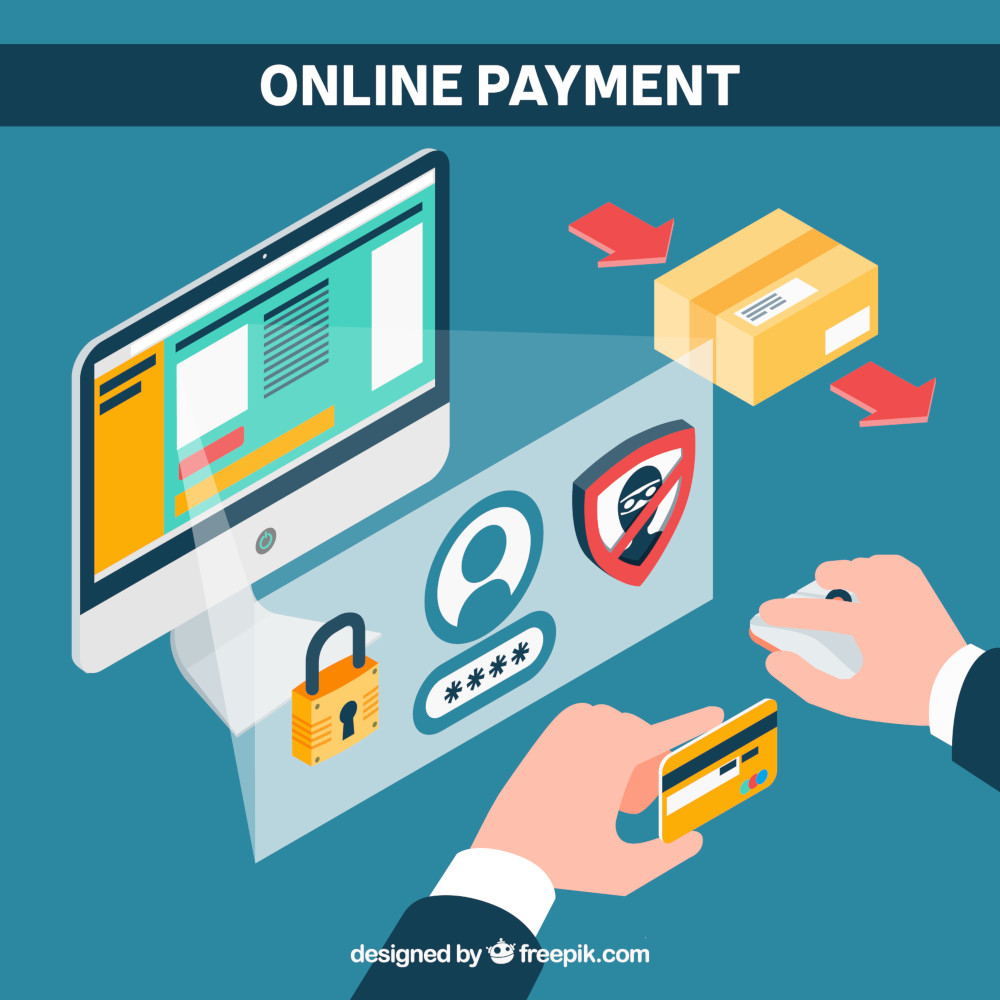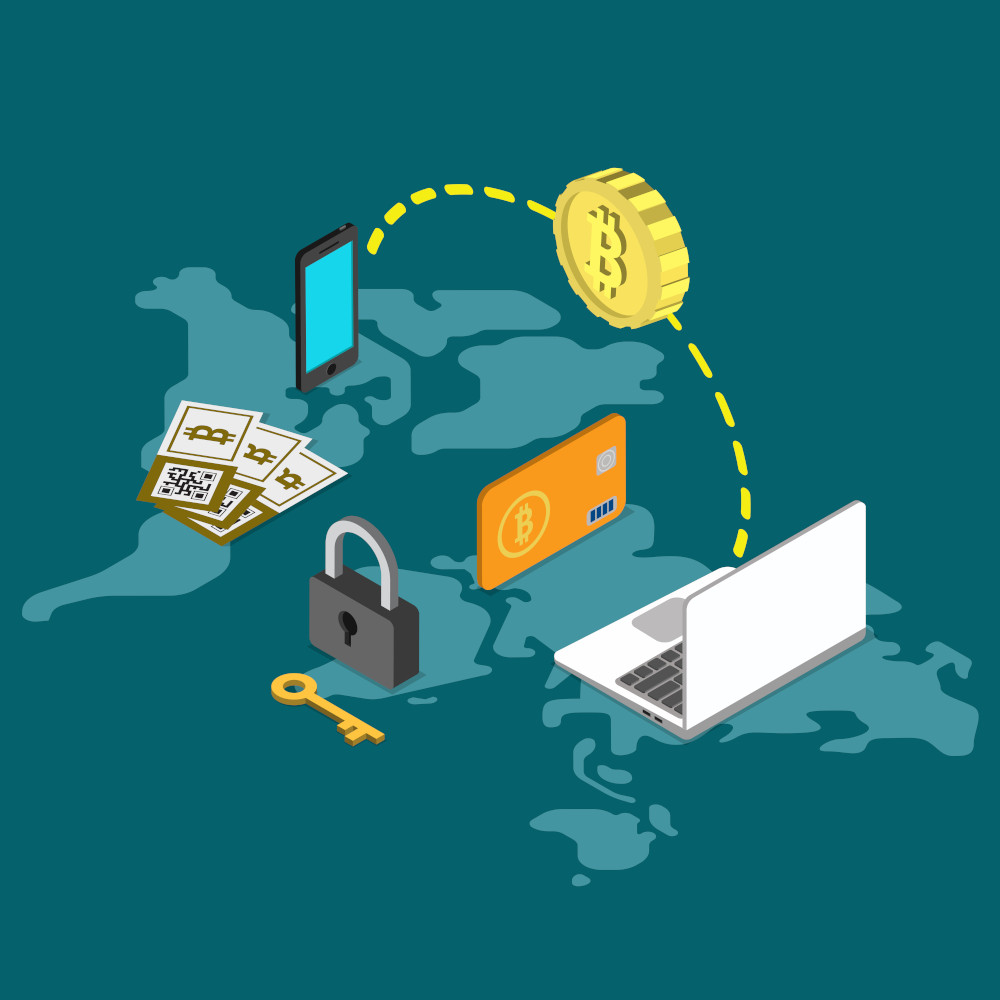The article delves into the world of online payment processing, shedding light on important aspects of e-commerce transactions. From payment gateways to the nuances of Payment Card Industry (PCI) compliance, this article navigates through the various types of payment methods available, demystifies payment processing fees, and emphasizes the significance of security measures for safe online transactions. Dive into this comprehensive guide to unravel the complexities of payment processing and gain valuable insights for navigating the digital payment landscape effectively.
Payment processing refers to the entire process of accepting and verifying payments from customers for goods or services purchased online. It involves various steps, including authorization, authentication, and settlement. Payment processing helps facilitate smooth and secure online transactions.
With the rise of e-commerce, businesses need a reliable payment processing system to accept payments from customers. Without an efficient payment processing system in place, businesses may face challenges in accepting payments, which can lead to lost sales and dissatisfied customers. Therefore, businesses need to understand the importance of payment processing and choose the right system that meets their needs.
Key Takeaways
- Payment processing is the backbone of online transactions, allowing businesses to accept payments from customers.
- Payment gateways act as the intermediary between the customer’s payment information and the merchant’s bank account.
- PCI compliance is essential for businesses that handle sensitive payment information to protect against fraud and data breaches.
- There are various payment methods available for online transactions, including credit/debit cards, e-wallets, and bank transfers.
- Payment processing fees can vary depending on the payment method and the payment gateway used.
The Role of Payment Gateways in Online Transactions

A payment gateway is a technology that acts as a bridge between the merchant’s website and the financial institution that processes the payment. It securely captures and encrypts customer payment information, authorizes the transaction, and transfers the funds from the customer’s account to the merchant’s account.
When a customer purchases on an e-commerce website, the payment gateway securely collects their payment information, such as credit card details or bank account information. It then encrypts this data to ensure its security during transmission. The payment gateway then sends this encrypted data to the acquiring bank or payment processor for authorization.
Examples of popular payment gateways include PayPal, Stripe, and Authorize.Net. These payment gateways offer a range of features and integrations that make it easy for businesses to accept payments online. They also provide additional security measures, such as fraud detection and prevention tools, to protect both merchants and customers from fraudulent transactions.
Understanding Payment Card Industry Compliance
PCI compliance refers to the adherence to the Payment Card Industry Data Security Standard (PCI DSS), which is a set of security standards established by major credit card companies to ensure the secure handling of credit card information. PCI compliance is essential for businesses that accept credit card payments to protect sensitive customer data and prevent data breaches.
Businesses that are not PCI compliant may face severe consequences, including fines, penalties, and loss of reputation. Achieving PCI compliance involves several steps, including securing the network, encrypting data, implementing access controls, regularly monitoring and testing systems, and maintaining a strong information security policy.
Types of Payment Methods Available for Online Transactions
| Payment Method | Description |
| Credit Card | A payment method that allows customers to pay for goods or services using their credit card information. |
| Debit Card | A payment method that allows customers to pay for goods or services using their debit card information. |
| Bank Transfer | A payment method that allows customers to transfer funds directly from their bank account to the merchant’s account. |
| PayPal | A payment method that allows customers to pay for goods or services using their PayPal account balance or linked bank account or credit card. |
| Apple Pay | A payment method that allows customers to pay for goods or services using their Apple device and linked credit or debit card. |
| Google Pay | A payment method that allows customers to pay for goods or services using their Google account and linked credit or debit card. |
There are various payment methods available for online transactions, each with its pros and cons. Some of the most common payment methods include credit cards, debit cards, digital wallets, bank transfers, and alternative payment methods like PayPal or Venmo.
Credit cards are widely used for online transactions due to their convenience and widespread acceptance. They offer consumers the ability to make purchases now and pay later, while also providing fraud protection and rewards programs. However, credit card transactions can be costly for merchants due to processing fees.
Debit cards are another popular payment method that allows customers to pay directly from their bank account. They offer similar convenience as credit cards but do not involve borrowing money. Debit card transactions typically have lower processing fees for merchants compared to credit cards.
Digital wallets like Apple Pay, Google Pay, and PayPal have gained popularity in recent years. They allow customers to store their payment information securely and make payments with just a few clicks or taps. Digital wallets offer enhanced security features like tokenization and biometric authentication.
Bank transfers involve the direct transfer of funds from the customer’s bank account to the merchant’s account. While they can be secure and cost-effective for both parties, they may not be as convenient as other payment methods due to the additional steps involved.
Alternative payment methods like PayPal or Venmo provide customers with an additional layer of security by keeping their financial information private. These payment methods are particularly popular among younger consumers who value convenience and privacy.
Payment Processing Fees: What You Need to Know
Payment processing fees are charges imposed by payment processors or acquiring banks for processing transactions. These fees can vary depending on the payment method used, the volume of transactions, and the type of business.
There are different types of payment processing fees that businesses should be aware of. The most common types include interchange fees, assessment fees, and processing fees. Interchange fees are charged by the card networks (Visa, Mastercard, etc.) and are a percentage of the transaction value. Assessment fees are charged by the card networks as well and are a fixed fee per transaction. Processing fees are charged by the payment processor or acquiring bank for their services.
To minimize payment processing fees, businesses can negotiate with their payment processor for lower rates based on their transaction volume. They can also consider using alternative payment methods that have lower processing fees or offer discounted rates for certain types of businesses.
Security Measures for Safe Online Transactions
Security is of utmost importance in online transactions to protect sensitive customer data and prevent fraud. There are several common security threats in payment processing that businesses should be aware of, including data breaches, identity theft, and card-not-present fraud.
To ensure safe online transactions, businesses should implement various security measures. These include using encryption to protect customer data during transmission, implementing multi-factor authentication to verify the identity of customers, regularly monitoring and testing systems for vulnerabilities, and educating employees about best practices for handling customer data.
Businesses should also comply with industry standards like PCI DSS to ensure the secure handling of credit card information. This involves implementing strong access controls, regularly updating software and systems, and conducting regular security audits.
The Importance of Payment Processing for E-commerce Businesses
The success of e-commerce businesses is highly determined by payment processing. A reliable payment processing system allows businesses to accept payments from customers quickly and securely, which is essential for generating revenue and maintaining customer satisfaction.
Using an efficient payment processing system can also help businesses streamline their operations and improve cash flow. With features like automated invoicing, recurring billing, and real-time reporting, businesses can save time and resources on manual payment processing tasks.
Furthermore, a reliable payment processing system can help businesses build trust with their customers. By offering secure payment options and protecting customer data, businesses can enhance their reputation and attract more customers.
Several successful e-commerce businesses have demonstrated the importance of efficient payment processing. For example, Amazon has built a reputation for its seamless checkout process and secure payment options, which has contributed to its success as one of the largest e-commerce platforms in the world.
Payment Processing Integration with E-commerce Platforms
Payment processing integration refers to the seamless integration of a payment processing system with an e-commerce platform. This integration allows businesses to accept payments directly on their website without redirecting customers to a third-party payment gateway.
There are several benefits of integrating payment processing with e-commerce platforms. First, it provides a seamless and consistent user experience for customers, as they can complete their purchase without leaving the website. This can help reduce cart abandonment rates and increase conversion rates.
Integration also allows businesses to access real-time transaction data and reporting within their e-commerce platform. This makes it easier to track sales, manage inventory, and analyze customer behavior.
Popular e-commerce platforms like Shopify, WooCommerce, and Magento offer built-in integrations with various payment processors and gateways. These integrations make it easy for businesses to set up and manage their online store while accepting payments securely.
Common Payment Processing Issues and How to Resolve Them
While payment processing systems are designed to be reliable, businesses may still encounter common issues that can disrupt their operations. Some of these issues include declined transactions, chargebacks, and technical glitches.
To troubleshoot declined transactions, businesses should ensure that the customer’s payment information is entered correctly and that they have sufficient funds or credit available. They can also contact the payment processor or acquiring bank for more information on why the transaction was declined.
Chargebacks occur when a customer disputes a transaction and requests a refund from their bank. To prevent chargebacks, businesses should provide clear product descriptions, accurate shipping information, and excellent customer service. They should also keep records of all transactions and communicate with customers to resolve any issues promptly.
Technical glitches can occur due to system updates, network outages, or software bugs. To resolve these issues, businesses should contact their payment processor or technical support team for assistance. It is also important to have backup systems in place and regularly test the payment processing system for any vulnerabilities.

Payment Processing Trends to Watch Out for in the Future
The payment processing industry is constantly evolving, driven by advancements in technology and changing consumer preferences. Some emerging payment processing technologies to watch out for in the future include mobile payments, contactless payments, and cryptocurrency.
Mobile payments are becoming increasingly popular as more consumers use smartphones for online shopping. With features like mobile wallets and one-click payments, mobile payments offer convenience and speed for both customers and businesses.
Contactless payments, enabled by technologies like near-field communication (NFC), allow customers to make payments by simply tapping their card or smartphone on a payment terminal. This technology is gaining traction due to its speed and ease of use.
Cryptocurrency, such as Bitcoin, has gained attention as an alternative payment method that offers security and anonymity. While still relatively new, cryptocurrency has the potential to disrupt traditional payment systems in the future.
To prepare for the future of payment processing, businesses should stay updated on emerging technologies and consumer trends. They should also ensure that their payment processing system is flexible and adaptable to accommodate new payment methods as they become more mainstream.
Payment processing is a critical component of online transactions that businesses cannot afford to overlook. It involves various steps, including authorization, authentication, and settlement, to ensure smooth and secure payments from customers. Payment gateways help facilitate online transactions by securely capturing and encrypting customer payment information.
PCI compliance is essential for businesses that accept credit card payments to protect sensitive customer data and prevent data breaches. Achieving PCI compliance involves implementing various security measures, such as securing the network, encrypting data, and regularly monitoring and testing systems.
There are various payment methods available for online transactions, each with its pros and cons. Businesses should consider the needs of their customers and the costs associated with each payment method when choosing the right payment options for their e-commerce store.
Payment processing fees can vary depending on the payment method used, the volume of transactions, and the type of business. To minimize fees, businesses can negotiate with their payment processor for lower rates or consider using alternative payment methods with lower processing fees.
Security is of utmost importance in online transactions to protect sensitive customer data and prevent fraud. Businesses should implement various security measures, comply with industry standards like PCI DSS, and educate employees about best practices for handling customer data.
Payment processing is important in the success of e-commerce businesses by facilitating smooth and secure online transactions. It allows businesses to accept payments from customers quickly and securely, streamline operations, and build trust with customers.
Integration of payment processing with e-commerce platforms provides a seamless user experience for customers and allows businesses to access real-time transaction data and reporting within their platform.
Common payment processing issues can disrupt business operations, but businesses can troubleshoot these issues by ensuring correct payment information, preventing chargebacks, and resolving technical glitches promptly.
The future of payment processing is driven by emerging technologies like mobile payments, contactless payments, and cryptocurrency. Businesses should stay updated on these trends and ensure that their payment processing system is flexible and adaptable to accommodate new payment methods.
Choosing the right payment processing system is critical for businesses to facilitate smooth and secure online transactions. By understanding the importance of payment processing, businesses can enhance customer satisfaction, streamline operations, and stay ahead in the competitive e-commerce landscape.
With 25+ years of experience in the credit card processing industry and having worked with over 2,000 clients Midwest Pay experts know the ins and outs. Our 0% attrition rate versus the 18 – 20% normal attrition rate with other merchant processing companies speaks to our ability and track record to help our clients reduce their costs. Send us your monthly merchant statement for evaluation, we’ll complete a maximum 30-minute call with you and outline the savings you can expect, and after you complete the simple e-sign application, you start realizing your savings within 48 hours. Contact us today!
FAQs
-
What is payment processing?
Payment processing is the process of transferring funds from a customer’s account to a merchant’s account for goods or services purchased.
-
What are the different types of payment processing?
There are several types of payment processing, including credit card processing, debit card processing, ACH processing, and e-wallet processing.
-
How does credit card processing work?
Credit card processing involves the use of a credit card terminal or online payment gateway to authorize and process a customer’s credit card payment. The payment is then transferred to the merchant’s account.
-
What is ACH processing?
ACH processing involves the use of the Automated Clearing House network to transfer funds between bank accounts. This is commonly used for direct deposit of paychecks and recurring payments.
-
What is e-wallet processing?
E-wallet processing involves the use of digital wallets, such as PayPal or Apple Pay, to transfer funds between a customer’s account and a merchant’s account.
-
What is a payment gateway?
A payment gateway is a software application that connects a merchant’s website or point-of-sale system to the payment processing network to authorize and process payments.
-
What is a merchant account?
A merchant account is a type of bank account that allows a business to accept payments from customers via credit card, debit card, or other electronic payment methods.
-
What is a payment processor?
A payment processor is a company that provides payment processing services to merchants, including authorization, settlement, and reporting of transactions.

